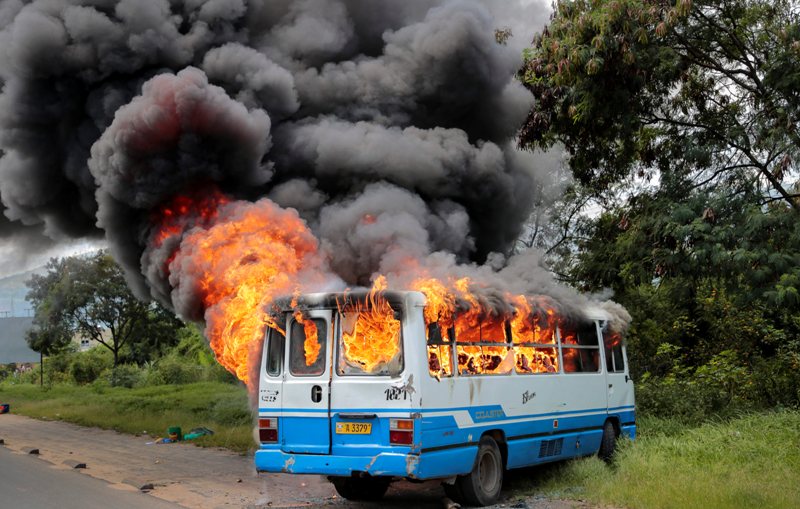Violence and political tensions in Burundi have prompted the Canadian government to warn against non-essential travel to the East African nation, while urging Canadians currently in the capital to stay indoors.

The Department of Foreign Affairs confirmed to Global News there are currently 335 Canadians registered as being in the Burundi, but that number may not be exact as it’s not a requirement for anyone to register their presence in the country.
Foreign Affairs, through its @TravelGOC Twitter account, said shooting could be heard in capital city Bujumbura and Canadians residing there should “shelter in place” and stay away from windows and doors.
Weeks of protests over President Pierre Nkurunziza’s bid to run for a third-term in office, which demonstrators believe was in violation of the Constitution, have led to clashes between opponents and those loyal to the president.
As Nkurunziza was attending a meeting of regional leaders in Tanzania on Wednesday, a senior military leader claimed an attempted coup d’état was underway.
The military is divided between supporters of Nkurunziza and Niyombare, who was fired in February as intelligence chief. The army chief of staff, Maj. Gen. Prime Niyongabo, said on state radio late Wednesday that he was against Niyombare.
Nkurunziza’s office said Thursday the president had returned to Burundi and Niyongabo said the coup attempt had failed.
At least 15 people have died in the unrest since April 26.
The United Nations estimates about 55,000 people have fled the neighbouring countries of Rwanda, Tanzania and the Democratic Republic of Congo to escape the chaos.
UN relief agencies expect the number of refugees will continue to rise and have begun to developing an emergency response plan.
Nkurunziza came to power in 2005 after a 12-years of civil war and ethnic violence between Hutus and Tutsis. Some 300,000 Burundians died before a peace agreement was reached in 2005.
With files from The Associated Press




Comments